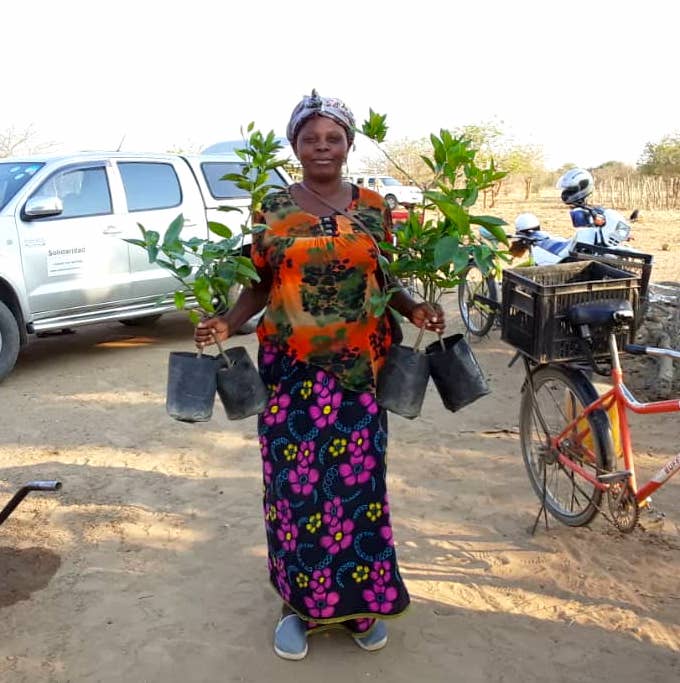Farmers are provided with seedlings and trained in good practices and business skills
Centralised food systems create exclusive food production ecosystems across different commodities; this means that only a few, well positioned players influence what, where, when, and how food is grown. Most smallholder farmers are not privileged to afford proximity to these well established food systems. Therefore, democratising our food systems becomes critical for the majority of the rural communities.
Many smallholder farmers rely on traditional, unsustainable, and often inefficient farming methods due to inadequate agronomic knowledge. These methods, coupled with bad soil management, lack of access to quality seeds, limited access to markets and financial services, and poor rural infrastructure have triggered and accelerated poverty, food insecurity, and environmental degradation. To help smallholder producers improve their economic and environmental sustainability, Solidaridad, under its Fruit & Vegetable project in Zambia, has established 14 Fruit & Vegetable nurseries across Katete, Chongwe, and Mazabuka.
Farmers have been trained on grafting techniques as a plant reproduction method
The nurseries are human centered as they not only provide indirect funding through the provision of certified vegetable and citrus seedlings but also act as platforms for behavioural change through good agricultural training, and business enterprise incubation. This will help farmers in understanding the concept of farming as a business, not just a way of life. Moreover, the project has helped to revive the country’s citrus sector, as most smallholders could not produce their own seedlings. This has been achieved by training farmers on grafting techniques as a plant reproduction method.
The project uses a human centered approach, addressing the most relevant needs for farmers
So far, the project has provided materials and inputs to produce 12,000 rootstock seedlings for oranges in Katete. Moreover, in the endeavour to contribute to an inclusive and sustainable fruit and vegetable sector in Southern Africa, this project, through training, aims to ensure that smallholder farmers can independently produce quality seedlings and build business cases with the prospect of upscaling.
Read more about our work in Fruits & Vegetables.

